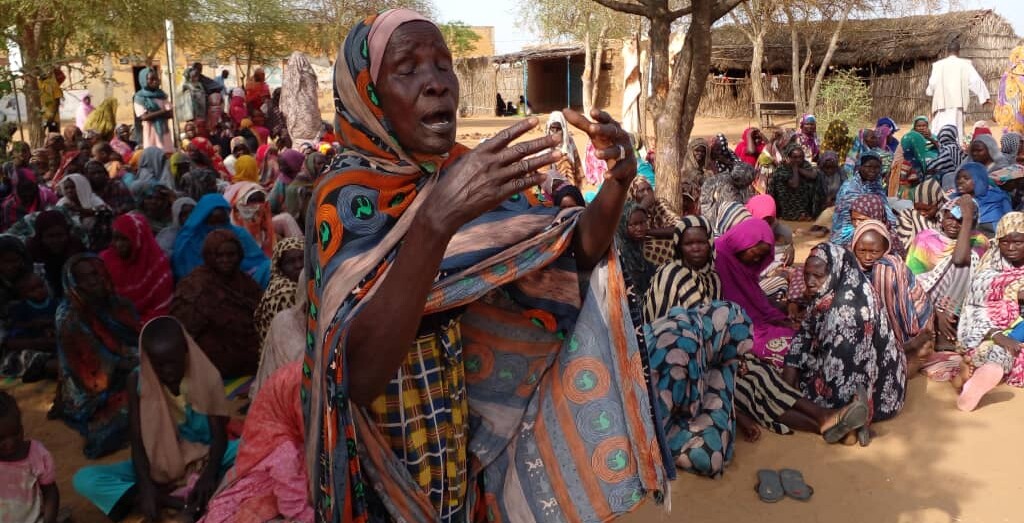Sudan Transparency and Policy Tracker warns of ‘fading and complicated peace prospects’

People gather at the centre of the El Salam displaced camp (also known as Abuja camp) near El Fasher in North Darfur, August 2023 (File photo: RD)
In a report for the Sudan Transparency and Policy Tracker published Monday, Bakri El Madani, professor and member of the Civil Democratic Forces alliance, Tagadom (Arabic for “progress”), argues that the stalled Geneva and Jeddah talks reflect Sudan’s entrenched regional and internal crisis, now 18 months into war. “The Geneva negotiations secured only humanitarian pledges without enforcement mechanisms, echoing the limitations of the Jeddah Declaration earlier this year,” he notes.
According to the professor, Port Sudan’s de facto authorities are intensifying efforts for legitimacy on the international stage, demanding embassies relocate from Khartoum and lobbying for Sudan’s reinstatement in the African Union.
“The Port Sudan camp is attempting to carve out a legitimate foothold,” says El Madani, noting that authorities have even considered forming a government composed of former allies of Sudanese President Omar Al Bashir and military figures. However, this move could antagonise the Rapid Support Forces (RSF), further complicating peace prospects.
“It’s a game of legitimacy that could push the RSF to stake its own claim as a governing body,” El Madani warns, highlighting the potential impact on negotiations.
Military confrontations have recently intensified, notably around El Gezira, Khartoum, Sennar, and El Fasher in North Darfur, with the Sudanese Armed Forces (SAF) resuming aggressive operations after months on the defensive.
This resurgence, El Madani explains, could either bolster SAF’s negotiation position or lead to a devastating counterattack by the RSF. “With the RSF’s recent declaration halting all negotiations, the likelihood of expanded hostilities, and a resultant humanitarian crisis looms,” he notes.
His analysis also points to a disturbing evolution within the conflict: the rise of ethnic militias and jihadist brigades tied to the SAF, many with origins in the former National Intelligence and Security Services.
He highlights the increasingly racial nature of the conflict, particularly in northern, eastern, and central Sudan, where “tribal militia mobilisation is now routine, and ethnic discrimination is on the rise.”
The possibility of internal discord among Port Sudan allies, particularly along ethnic lines, is growing, he warns, calling this “the most dangerous phase yet, where the war’s roots are intertwined with race and religious ideology.”
Reflecting on the past 18 months, El Madani argues for a unified international and regional approach, with efforts led by the African Union.
“A unified African Union-led approach, coupled with local civic initiatives against hate speech, is vital,” he urges, underscoring the role of the African Union and local leaders in countering propaganda by both sides.
He suggests urgent measures, including protected humanitarian corridors along borders with Egypt, South Sudan, and Chad, backed by an African peacekeeping force to ensure safe civilian zones.
“Unless Sudanese leaders, along with key regional actors, break from this current trajectory, the bloodshed will only intensify,” he concludes, calling for a strategic shift in negotiations that integrates ceasefire talks and humanitarian access from the outset.
The road ahead, El Madani argues, demands resilient diplomatic and grassroots efforts to address both the conflict’s underlying grievances and immediate humanitarian needs.
Read the full Sudan Transparency and Policy Tracker report here: Sudan war: Initiatives falter, fighting escalates, the nature of the war changes, and then what?











 and then
and then